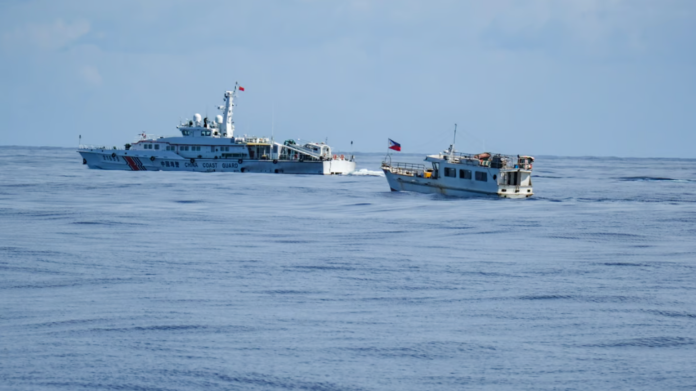Our economy is being harmed by China’s aggressive actions in our exclusive economic zone (EEZ) in the West Philippine Sea, especially in the oil sector. Despite our pressing need for domestic energy supplies, this meddling has hampered the exploration and exploitation of oil and gas resources, leaving potentially substantial reserves unexplored.
The Recto Bank is one among the regions affected; China’s obstructionism has kept us from reaching possible hydrocarbon reserves there. This is particularly important as we look for alternatives to Palawan’s diminishing Malampaya gas source, which now provides 20% of the energy required by the Luzon Power Grid.
Fortunately, Ricky Razon of Prime Energy has been able to maintain gas production at Malampaya, which has allow Batangas’ natural gas plants continue to run. When other power plants are offline or running at a reduced capacity, this has shown to be quite important.
But the bigger problem still exists. In a piece for International Investor, Eric Jurado emphasized how Chinese meddling has affected regional energy projects. He made the point that, in spite of important findings, Chinese activities have caused projects like Vietnam’s “Blue Whale” to stay stuck. This makes it harder for us to access our own resources and makes our energy problems worse.
The Sampaguita field in Recto Bank, which is estimated to have significant oil and gas reserves, is the most practical substitute for Malampaya. However, Chinese resistance has impeded the actual development and confirmation of these deposits, costing businesses like PXP Energy Corp. and Forum Energy Ltd. money.
The Hague Arbitral Court concluded that the Philippines’ strategic location within its EEZ should ensure its sovereignty over these resources. However, persistent hostilities and China’s assertiveness have led to uncertainty, which has complicated efforts to secure energy security and turned off investors.
Because of this situation, the Philippines and other affected countries are now more dependent on pricey energy imports, which puts them in danger from both market volatility and geopolitical concerns. The stability and economic progress of the region are further undermined by the incapacity to develop domestic sources.
Proposals to explore and develop additional prospective locations, such as the Sulu Sea’s Cinco Prospect, have encountered similar obstacles, such as regulatory roadblocks and bureaucratic delays. These obstacles delay the development of vital energy assets and discourage big participants.
Initiatives engaging local and international partners must be collaborative in light of these challenges. To realize the full potential of our energy industry, we must address bureaucratic inefficiencies, streamline approval procedures, and create an atmosphere that is favorable to investment.
In the end, maintaining international law and settling territorial disputes are critical to creating a secure and prosperous atmosphere for the region’s energy development.





